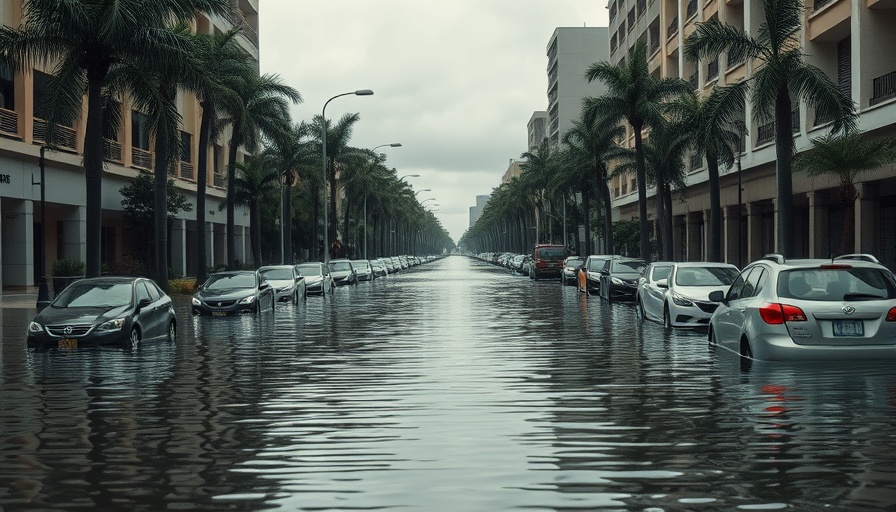
Lessons from Katrina: The Urgent Need for Accurate Catastrophe Models
Hurricane Katrina reshaped not just New Orleans but also the landscape of catastrophe modeling, challenging our understanding of risk. The storm's devastation was magnified by inadequate models that miscalculated the levee's strength, underestimated property exposure, and failed to adequately account for storm surges. As we look back nearly 20 years later, the implications are profound—not just for insurers but also for homeowners, especially those on coastal lines vulnerable to natural disasters.
The Rising Stakes: A Shift in Property Values
In the wake of Katrina, which set an unprecedented financial benchmark for hurricane impacts, property values along the coast have ballooned. "What we build today is not what we built 10 or 20 years ago," notes Karen Clark, highlighting the shift toward more expensive and lavish properties designed for resilience but potentially at a great financial risk. As more families flock to these coastal regions, understanding the implications of these increasing property values is crucial for those considering insurance claims or property purchases.
Climate Change: The Wild Card Investment
Climate change looms large, directly influencing the frequency and intensity of hurricanes. The Swiss Re Institute points to rising temperatures and sea levels as exacerbating factors likely to elevate future insured losses to staggering amounts—as much as $100 billion in inflation-adjusted terms for storms relative to past hurricanes. For homeowners, this reality means being proactive in evaluating their coverage and preparing for potentially hefty premium increases or even challenges in securing adequate insurance.
Secondary Perils: The Hidden Risks
While recent advancements have certainly improved catastrophe models, they still fall short, particularly regarding secondary hazards like inland flooding and tornadoes. The recent case of Hurricane Helene serves as a glaring example; models concentrated on coastal impacts overlooked the serious risks of catastrophic inland flooding. Homeowners often remain without flood insurance simply because they don't reside in designated risk zones—an oversight that can lead to financial ruin following unexpected events.
Understanding Your Insurance Claim Process
Given these evolving risks, understanding the insurance claim process is essential for vehicle owners and homeowners affected by disasters. Each claim carries a timeline. From when to file a claim following a disaster to what to expect during negotiations with your insurance adjuster, navigating these waters can be fraught with peril. It's crucial to empower oneself with knowledge—understanding how to file a claim effectively can mean the difference between a successful resolution and a denied insurance claim.
Strategies for Success: Tips for Your Claims Process
When engaged in a claims process—be it for vehicle property damage or home repairs—equipped claimants can negotiate better outcomes. Consider keeping meticulous records, document all communications with your insurer, and don’t shy away from challenging lowball settlement offers. These tips can streamline the claims timeline and enhance your chances of receiving a fair insurance settlement, especially as the strain of climate-related disasters becomes more pronounced.
Take Action: Be Prepared for Future Natural Disasters
As we stand on the brink of another hurricane season, it’s imperative that homeowners take actionable steps to prepare themselves. This includes conducting risk assessments, aligning their insurance policies with their current and future needs, and understanding the potential psychological and financial repercussions of disasters. The insights gleaned from Katrina's lessons are not merely retrospective; they are a clarion call for proactive engagement against natural catastrophes to safeguard personal assets.
In conclusion, the haunting lessons from Hurricane Katrina extend far beyond the storm's immediate aftermath; they shape our understanding of the insurance landscape today. For homeowners, being aware of how to negotiate claims effectively and anticipate risks associated with climate change can ensure more secure futures.
 Add Row
Add Row  Add
Add 




Write A Comment